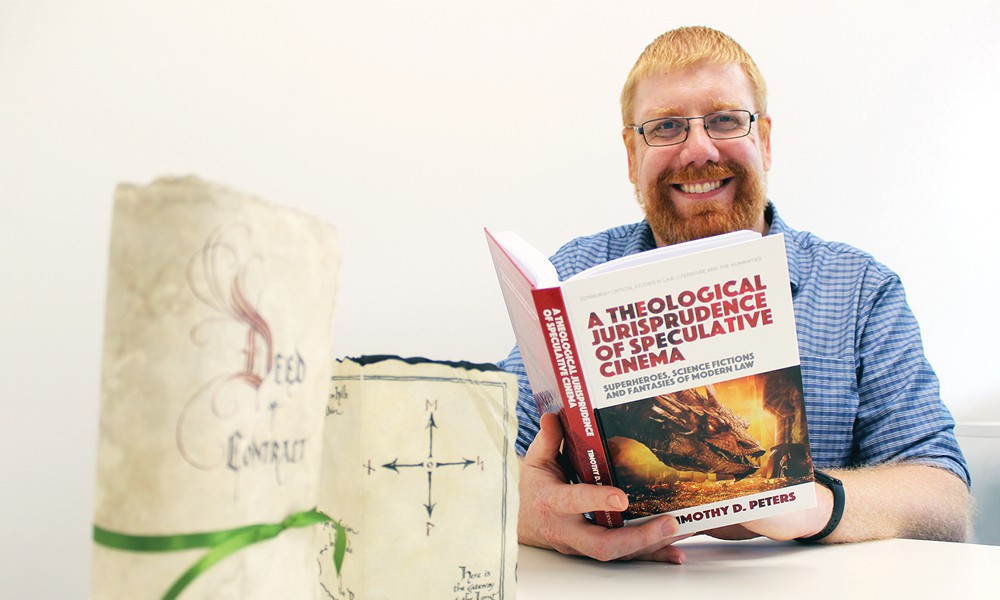Blockbuster films could be serving up more than just hours of entertainment, according to a local author whose new book uncovers hidden lessons on law featured in speculative fiction.
University of the Sunshine Coast (USC) Senior Lecturer in Law Dr Timothy Peters said movie audiences were often exposed to aspects of the modern legal system while enjoying tales of superheroes and arch-villains, having people learn about law without even realising it.
“Watching and engaging with films and with speculative fiction is not simply a way to understand or explain the law, it’s the way we actually already do understand law,” Dr Peters said.
“Law isn’t just what’s sitting in a piece of legislation, or in a case or a legal treatise. It is something we engage in every day and is influenced by our cultural images and perspectives on legality.
“The representations of law and our understanding of law functions through these cultural texts as much as it does through formal institutions.”
Dr Peters explores the relationship between the law and speculative fiction in his recently-released book, A Theological Jurisprudence of Speculative Cinema: Superheroes, Science Fictions and Fantasies of Modern Law.
He looks at how seven Hollywood blockbusters incorporate legal concepts such as justice, sovereignty, law’s universality and violence, revolution, the exception, and property as theft. The films are The Hobbit, Star Wars, The Dark Knight and The Dark Knight Rises, Unbreakable, Man of Steel, I, Robot and The Adjustment Bureau.
Dr Peters’ book also delves into key themes of theology, including the nature of evil, compassionate acts, sacrifice, atonement, myth and mysticism, visions of the divine and charity as gift.
“These films include scenes that are both legal and theological,” Dr Peters said. “Superheroes, for example, are often presented in Christological terms making a great sacrifice, giving up his life to save the city, country, galaxy or universe.
“You have those themes of sacrifice, of battles of good and evil that the average viewer would see.”
Dr Peters said his book revealed the origins of those ideas conveyed through speculative cinema and their impact on society’s modern understanding of law.
“At times the films are presenting what can be called the exceptional aspects of law – its violence, its legitimising of extreme measures and its punishment of the individual,” he said.
“But the argument of the book is that there is another message in there as well which is ‘how do we live together in community?’.”
Dr Peters’ book was launched at a recent ‘Law, Literature and Humanities Association of Australasia’ conference hosted by USC.





Share this article